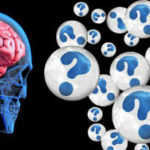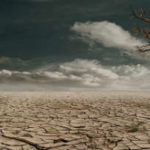The Truth About Caffeine
Do you depend on the caffeine in your morning cup of coffee to get you going? Many people feel it is difficult to function without that shot of caffeine. Since it is such a common substance that shows up in many popular drinks such as tea, coffee, and soft drinks, Ira Riklis looks into some facts and myths about it.
Is Caffeine Really Addictive?
You’ve probably heard that too much caffeine is bad for you and that you will get addicted to it. Although it doesn’t cause physical and mental harm in the way that addictive drugs do, regular caffeine intake can cause some mild physical dependencies. If you have ever gotten a headache because you didn’t get your daily dose of caffeine, then you might have a dependency on caffeine. Some common symptoms associated with caffeine withdrawal include:
- Headaches
- Nervousness and Anxiety
- Irritability
- Fatigue
- Decreased Concentration
- Depression
Because caffeine doesn’t cause dangerous withdrawal symptoms such as those associated with drugs and alcohol and you can easily cut back on caffeine consumption, experts agree that caffeine dependence is not a serious addiction.
Is It True That Sleep Can Be Affected?
It is a common belief that caffeine will keep you up all night. However, it all depends on when you ingest the caffeine. Caffeine has a short half-life meaning it takes about five to seven hours for your body to process and eliminate it. After eight to 10 hours, your body has eliminated 75 percent of it. Therefore, if you have caffeine in the morning, chances are you will see no effects when you go to bed that evening. But, if you have a soft drink or other caffeine-rich drink right before bedtime, then you may have trouble falling asleep and staying asleep. Remember, caffeine is a stimulant. You should avoid caffeine at least six hours before you plan on going to bed.
Is There A Dehydrating Effect?
Have you ever noticed that when you fill up on drinks high in caffeine, you have the need to urinate quite often? Maybe you’ve been told that because of this, you will become dehydrated if you consume caffeine. The actual fact of the matter is that any fluid you lose through urination is being replaced with the fluid you are consuming. So, drinking caffeinated drinks in moderation will not cause dehydration.
There are many myths associated with caffeine. If you’re someone who consumes caffeine on a regular basis and wants to learn more, visit this website.
When Is Caffeine Consumption A Problem?
Most people regularly consume caffeine. Although an article published by Reuters shows that soda sales are decreasing, soda remains an overwhelmingly popular drink. Coffee and tea are right up there in popularity with soda. That’s a lot of people consuming a lot of caffeine. Since it is a stimulant, many people use it throughout the day as a pick-me-up. Some can’t start their day without it and if they do, they remain in a fog the entire day. So, with this substance being such a common and integral part of daily living, you may wonder when does caffeine consumption become a problem. A few scenarios can arise that will signal to you that caffeine is a problem in your life and they include:
- Having health issues, such as a heart problem, as caffeine can exacerbate them
- Picking up other unhealthy habits such as smoking or eating to go along with the caffeine habit
- Suffering from caffeine withdrawal when you can’t have it or are trying to cut back
While caffeine consumption is fine in moderation, you may want to cut back if you’re consuming an excessive amount.







